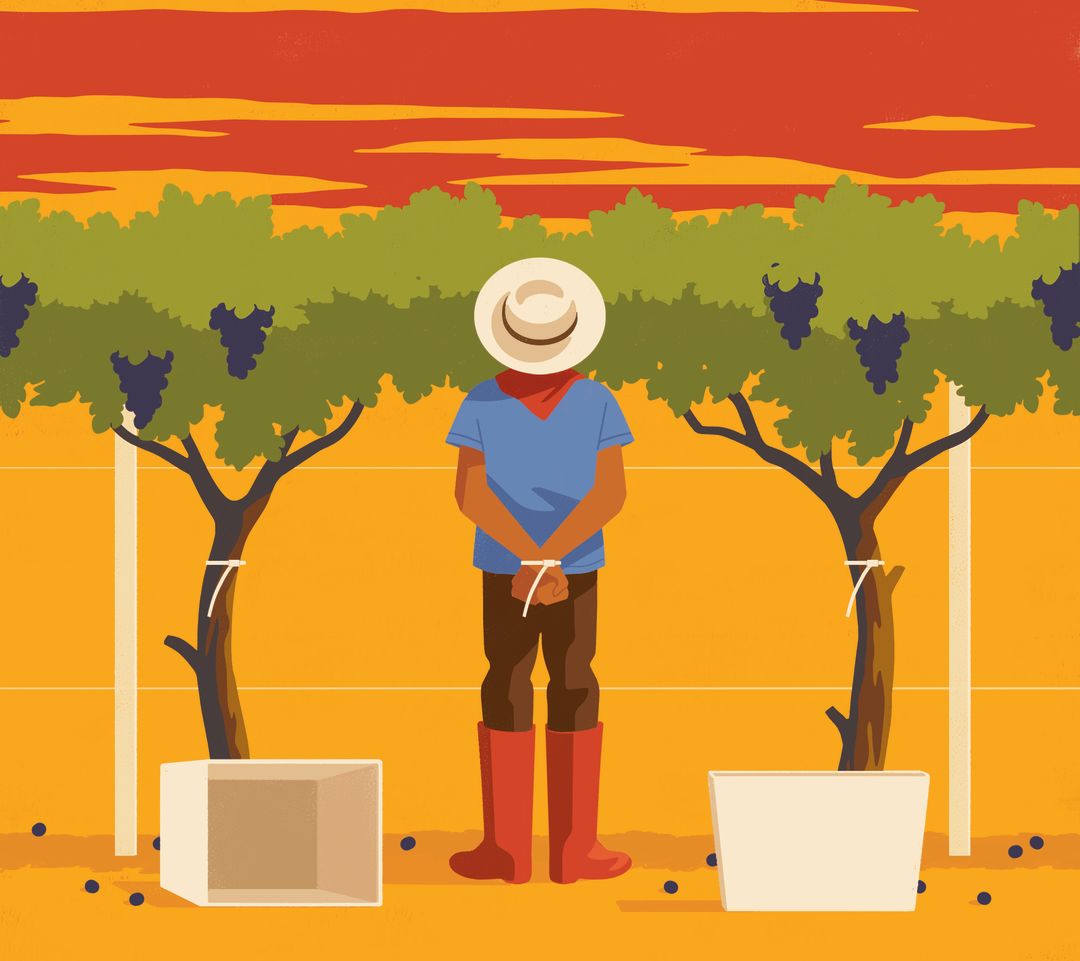How Trump’s Immigration Crackdown Is Impacting Oregon Wine Country

O
n June 12, Moises Sotelo left his home in Newberg and drove toward Novo Start Vineyard Service, the agricultural business he founded in 2024 after more than 20 years in Oregon’s wine industry. He never made it. His truck was found abandoned near his home, and his daughter, 26-year-old Alondra Sotelo Garcia, soon tracked his phone to an Immigration and Customs Enforcement (ICE) detention center in Portland. Within days, his story was covered by publications like Newsweek and The Guardian. His family started a GoFundMe page, raising more than $150,000 for legal fees and support. Still, in July, Sotelo was deported to Mexico, where he had lived before moving to the United States in 1994. In August, his wife followed to reunite and stay with him. Alondra, a US citizen, traveled with her mom before returning to Newberg to take care of her younger brother, her two teenage nieces, and her father’s business.
When it comes to Donald Trump’s immigration policies, Sotelo’s may be the most prominent local story, but it speaks to a nationwide crisis. Detainments and arrests have remained low in Oregon compared to places like California, Texas, or Florida (together those three states account for around 40 percent of immigration-related arrests in 2025). But the constant threat of deportation and profound aggression from the Trump administration have produced a climate of fear in the Willamette Valley.
Reyna Lopez is the executive director of Pineros y Campesinos Unidos del Noroeste (PCUN), a labor union for farmworkers and tree planters. She describes the atmosphere today as worse than at any time in recent memory. Even compared to the early 1980s, before the Immigration Reform and Control Act provided a pathway to legal status for nearly 3 million undocumented immigrants, “the fear, and the cruelty, is 10 times scarier.” She points to the tactics used by the Trump administration to carry out his campaign promise of “the largest domestic deportation operation in American history,” violent and bolstered by the American military. In Woodburn, federal operatives smashed the driver’s-side window of a vehicle carrying migrant workers in August. Four of them, all members of the Indigenous Mam people of Guatemala, were reportedly sent to a detention center in Tacoma.
Local arrests and detainments have targeted individuals and small groups at immigration hearings, in their vehicles, and at home. It’s a smaller scale compared to the raids on Los Angeles–area Home Depot parking lots, or the September raid of a Georgia-based Hyundai plant that saw 475 people, most of them South Korean nationals, detained and deported. But beyond the human toll, there’s a considerable cost to the Willamette Valley’s agricultural industries. Immigrants make up more than 60 percent of Oregon agricultural workers—crucial contributors to the state’s $8 billion wine industry. “Farmworkers are being targeted in their own neighborhoods on their way to work,” says Lopez. “They’re recalculating what kind of risks they’re willing to take. And when workers are scared to go to work, that really does put a cloud over the industry.”
Yamhill County Commissioner David “Bubba” King was elected in 2024. As a former member of the hospitality industry, King has close ties to many of the region’s winemakers, restaurant owners, and farmers. They frequently approach him concerned for the wellbeing of their workers, many of whom are neighbors. And as those laborers vanish, either into ICE holding centers or into hiding, many of King’s constituents worry about their own livelihoods, their ability to maintain farms and vineyards, and the stability of Oregon’s agriculture industry.
While organizations like the Deportation Data Project have managed to access estimates, exact numbers of arrests and detentions—as well as the identities of detainees—are challenging to track due to obfuscation by immigration enforcement. King says ICE doesn’t make its arrest reports available, even to elected officials. “They don’t have a roster that’s published like the sheriff would, or the FBI would,” he says. “Who’s…in their custody? How long have they been there?…When are they going to be deported?” And a fear of identification and reprisal discourages undocumented workers from reporting those friends, family members, and colleagues who may have been taken into custody. King also points to lack of identification for supposed ICE agents, a concern echoed by lawmakers and advocates nationwide.
King is not alone in his concerns about federal overstep. Attorney Stephen Manning cofounded the Portland-based Innovation Law Lab in 2014 to provide intervention and legal representation for immigrants and refugees. He likens the current administration’s approach to immigration enforcement to the “prerogative state,” a theory developed by Jewish attorney and political scientist Ernst Fraenkel in the early 1940s, shortly after he emigrated from Germany to the US. Fraenkel wrote that under the Nazi regime many citizens remained in a “normative state,” the one where written law still held meaning. Jewish and LGBTQ+ people, as well as other minorities, were relegated to the prerogative state, where law was determined by the whims of Hitler and his regime. Manning worries that many Americans are still living in the normative state, underestimating what he sees as an immediate crisis—one that will grow exponentially as ICE’s budget balloons to more than $150 billion over the next few years.
Against this backdrop, a coalition called Oregon for All, an effort of over 100 organizations (including PCUN and Innovation Law Lab), has been offering tool kits, advocacy, and classes, including “know your rights” trainings for immigrant communities since 2024. Fundraisers have sprung up in the valley and in Portland, often raising money for the work coordinated by Oregon for All member groups. Others raise money for specific cases, like Sotelo’s.
“Every Oregonian, including immigrant Oregonians, deserve to live in communities where their families can feel safe and protected,” says Lopez. “We can all feel for each other when it comes to those things: family, safety, security…and being able to just live our lives.”
Share this content:















Post Comment